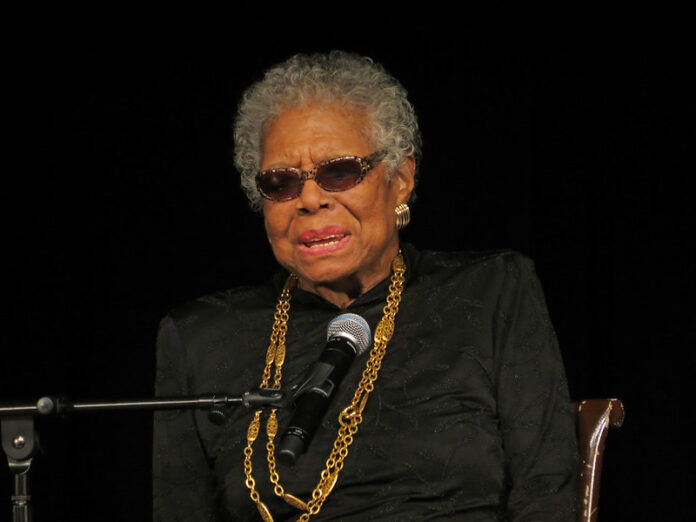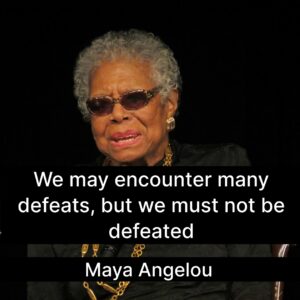
Maya Angelou was a true renaissance woman – a celebrated poet, memoirist, civil rights activist, singer, dancer, actress, and professor. Her life story is one of resilience, triumph, and a relentless pursuit of self-discovery. From overcoming the trauma of a devastating assault in her childhood to becoming a renowned voice for the voiceless, Maya Angelou’s remarkable journey exemplifies the power of the human spirit.
Early Life: Overcoming Adversity
Maya Angelou’s early life was marked by challenges that would have broken many. At the tender age of 7, she was sexually assaulted by her mother’s boyfriend. When he was murdered after she came forward, Angelou was filled with guilt and was mute for 6 years, fearing it was her fault he was murdered. Despite this traumatic event, Angelou refused to be defined by her pain. She immersed herself in the rich tapestry of literature, finding solace and strength in the words of authors like Charles Dickens and William Shakespeare.
Angelou’s resilience was further tested as she navigated a series of jobs, including becoming the first African American woman to work as a streetcar conductor in San Francisco. These experiences, though daunting, only served to fuel her determination and shape her unique perspective on the world.
Maya Angelou’s Journey to Finding Her Voice
The years of silence were a critical part of Angelou’s journey, as they allowed her to cultivate a deep understanding of the power of language and the importance of finding one’s own voice. When she finally broke her silence, her words resonated with a profound depth and clarity that captivated audiences around the world.
Angelou’s poetic prowess blossomed, and she went on to pen some of the most beloved and influential works of the 20th century, including the autobiographical masterpiece “I Know Why the Caged Bird Sings.” Her poetry, infused with themes of identity, resilience, and the human experience, earned her widespread acclaim and transformed her into a literary icon.
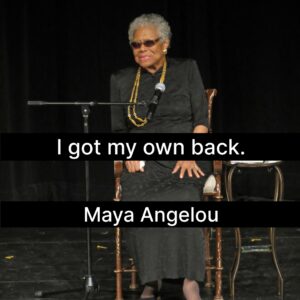
Diverse Career: Singer, Dancer, Actress, and Memoirist
Maya Angelou’s talents extended far beyond the realm of poetry. She was a multifaceted artist who excelled in a variety of disciplines, including singing, dancing, and acting. Her performance career began in the 1950s, when she toured Europe as a dancer and singer with a production of “Porgy and Bess.”
Angelou’s acting credits are equally impressive, with roles in films such as “Georgia, Georgia” and “How to Make an American Quilt.”
In addition to her artistic pursuits, Angelou was a prolific memoirist, penning a series of autobiographical works that provided a window into her extraordinary life. These memoirs, including “I Know Why the Caged Bird Sings” and “The Heart of a Woman,” captivated readers with their raw honesty and poetic language.
Impact on the Civil Rights Movement
Maya Angelou’s influence extended far beyond the realm of the arts. She was a passionate and tireless advocate for civil rights, using her platform to amplify the voices of the oppressed and champion the cause of equality.
During the height of the civil rights movement, Angelou worked closely with leaders like Martin Luther King Jr. and Malcolm X, lending her powerful voice to the struggle for social justice. Her poetry and speeches became rallying cries for a generation seeking to dismantle the barriers of racism and discrimination.
Angelou’s commitment to the civil rights cause was unwavering, and she continued to use her voice to advocate for marginalized communities throughout her life. Her impact on the movement was profound, and her legacy as a trailblazing activist and visionary thinker continues to inspire generations of change-makers.
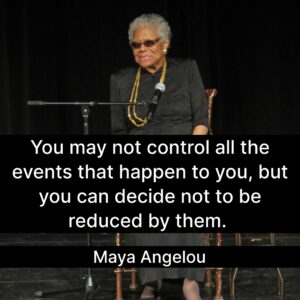
Social Activism
Maya Angelou was also a tireless advocate for social justice and human rights. She was actively involved with the Harlem Writer’s Guild, a collective of African American writers who used their craft to amplify the voices of the marginalized and challenge the status quo.
Angelou’s commitment to social activism continued throughout her life, and she was honored to recite her poem “On the Pulse of Morning” at the inauguration of President Bill Clinton in 1993. This historic moment marked the first time an African American woman had been selected to deliver an inaugural poem, showcasing Angelou’s enduring influence and the power of her words to inspire and unite.
Angelou’s unwavering dedication to social justice and her willingness to use her platform to advocate for the rights of all people solidified her status as a true icon of the civil rights movement. Her legacy as a trailblazing activist and visionary thinker continues to inspire generations of change-makers around the world.
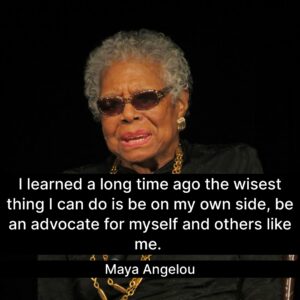
Recognition and Accolades
Maya Angelou’s remarkable achievements and contributions to the world were widely recognized, and she was the recipient of numerous prestigious awards and honorary degrees. Among her accolades were the Presidential Medal of Freedom, the highest civilian honor in the United States, and the Spingarn Medal, the NAACP’s highest honor.
Angelou was also the first African American woman to be honored with a Pulitzer Prize nomination for her poetry, and she received over 50 honorary degrees from universities around the world, a testament to her profound impact on education and the arts.
Her literary works, including “I Know Why the Caged Bird Sings,” have been translated into dozens of languages and have been studied and celebrated in classrooms around the globe. Angelou’s legacy as a literary icon and trailblazer continues to inspire and captivate readers and scholars alike.
Contributions to the Film Industry
In addition to her remarkable achievements in the literary and civil rights arenas, Maya Angelou also made significant contributions to the film industry. She was the first African American woman to have a screenplay, “Georgia, Georgia,” turned into a feature film, a groundbreaking accomplishment that paved the way for greater diversity and representation in the industry.
Angelou’s foray into screenwriting was just one aspect of her multifaceted career in the arts. She also appeared in several films, including “How to Make an American Quilt” and “Poetic Justice.”
Through her work in the film industry, Angelou continued to challenge societal norms and push the boundaries of what was possible for African American women in the arts. Her trailblazing spirit and unwavering commitment to excellence have affected the world of cinema and beyond.
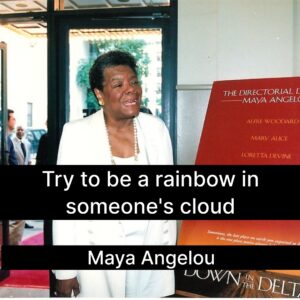
Celebrating Her Legacy: The 50th Anniversary of the United Nations and Beyond
Maya Angelou’s remarkable life and legacy were celebrated on a global scale, particularly during the 50th anniversary of the United Nations in 1995. Angelou was invited to deliver a powerful and moving speech at the commemorative event, where she captivated the audience with her eloquence and her unwavering commitment to the ideals of peace, equality, and human dignity.
Angelou’s words resonated with people around the world, and her impact continued to be felt long after her passing in 2014. She remains a beloved and revered figure, celebrated for her artistic brilliance, her social activism, and her unwavering dedication to the betterment of humanity.
Today, Maya Angelou’s legacy lives on through the countless lives she has touched, the generations of writers and activists she has inspired, and the enduring power of her words to uplift, empower, and transform. Her remarkable journey exemplifies the resilience of the human spirit and the transformative power of the written and spoken word.
